|
EPONYMY
Definitions / Bibliography
/ Examples /
More Examples
eponym n. 1. A person whose name is or is
thought to be the source of the name of something, such as a city, country, or era. For
example, Romulus is the eponym of Rome. 2. Medicine. A name of
a drug, structure, or disease based on or derived from the name of a person.
[French Úponyme, from Greek "named after": epi-, epi- + onoma,
onuma, name.]
eponymy n.
Derivation of a name of a city, a country, an era, an institution, or other place or thing
from that of a person.
eponymic adj. or eponymous adj. Of, relating to, or constituting an eponym.
Note: All the above dictionary entries are from the American Heritage
Dictionary, New College Edition.
Bibliography:
Asimov's Biographical Encyclopedia of Science and
Technology, Doubleday and Company, Inc., Garden City, N.Y. 1964
Chamber's Biographical Dictionary, St. Martin's Press, N.Y. 1961
Dictionary or Word Origins by Joseph T. Shipley, The Philosophical
Library, N. Y., 1945
Word Origins by Cecil Hunt, The Philosophical Library, N.Y., 1949
Webster's Biographical Dictionary, G.& C. Merriam Co., Publishers,
Springfield, Mass., 1963
Back to the Top
EXAMPLES of Eponyms
algorithm: a procedural rule for solving a
mathematical problem involving a repeated operation.
Such a device was discovered by the ninth century Arab mathematician Abu
Ja'Far Mohammad Ben Musa, also known as al'Khowarazmi
from his native town of Khiva, Kharazm. |
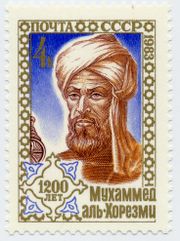
al'Khowarazmi
|
boycott : to abstain from using, buying, or
dealing with, as a protest or means of coercion.
This practice is named after Charles C. Boycott (1832-1897),
a land agent for the Earl of Erne, County Mayo, Ireland, who was ostracized by the tenants
for refusing to lower the rents. 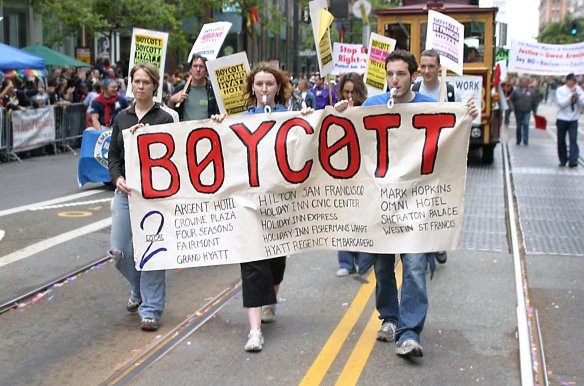 |

Charles C. Boycott |
chauvinism:
1. exaggerated and sacrificial
patriotism, usually demonstrated in War.
2. extreme and unreasoning partisanship on
behalf of a group to which one belongs, especially when the
partisanship includes malice and hatred towards a rival group.
Nicholas Chauvin de Rochefort (fl. 1815), a French fusilier,
was wounded seventeen times during the French Revolutionary and Napoleonic Wars. He
suffered three amputated fingers, a fractured shoulder and mutilation of the forehead. For
his bravery he received a sword of honor, a red ribbon and a pension of two hundred
francs. |
|
churrigueresque: a Spanish baroque architectural
style characterized by elaborate surface decoration.
Jose Churriguera (d. 1713), a Spanish architect, created this
style. |
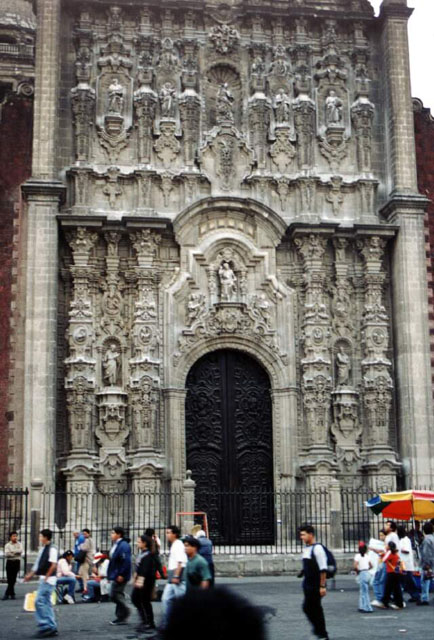
a churrigueresque style
church |
Droste effect: A picture
exhibiting the Droste effect depicts a smaller version of itself
which depicts an even smaller version
of itself in the same place, and so on. Technically this can go
on forever, but practically it continues as long as the
resolution of the picture allows.
Droste Cocao
The package for this famous Dutch
cocoa depicts a nurse carring a plate with a
package on which there is the same package, etc.
|
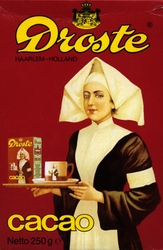
Droste cocoa
package |
galvanize: to coat with zinc by means of an
electric current.
Luigi Galvani (d. 1798), an Italian physician and
physicist, perfected this process designed to protect metals. |
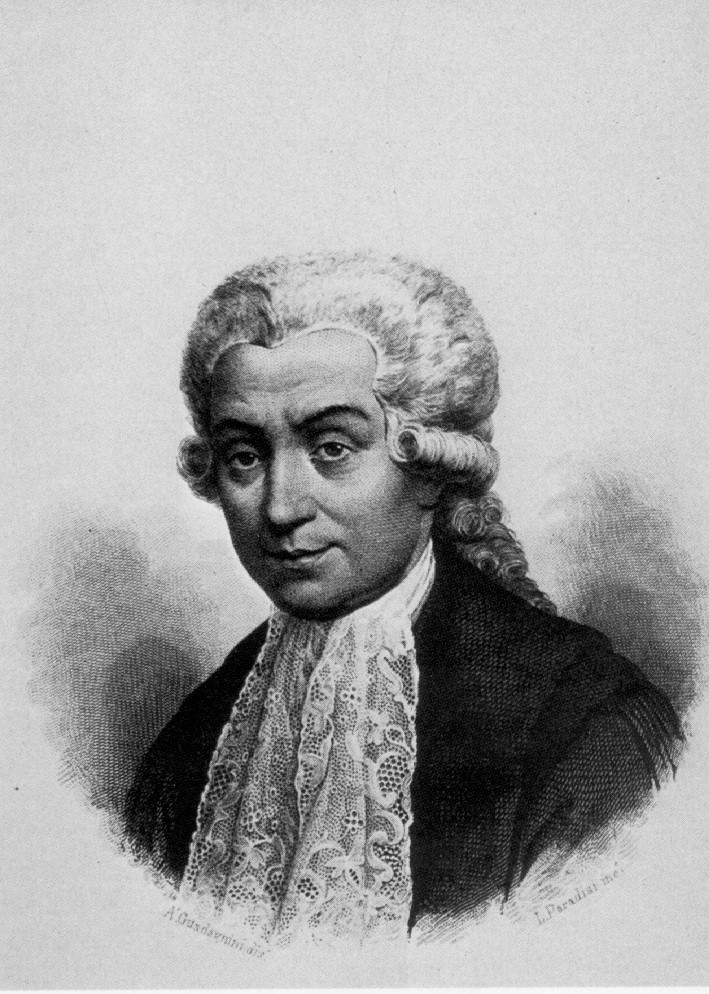
Luigi Galvani |
gerrymander: to divide a territorial unit into
election districts in order to give one political party a majority in many districts.
This word is a blend, whose two parts originate from: (1) Elbridge
Gerry (1744-1814), elected governor of Massachusetts in 1810 and 1811 and fifth
vice-president of the U.S. in 1812 under James Madison.
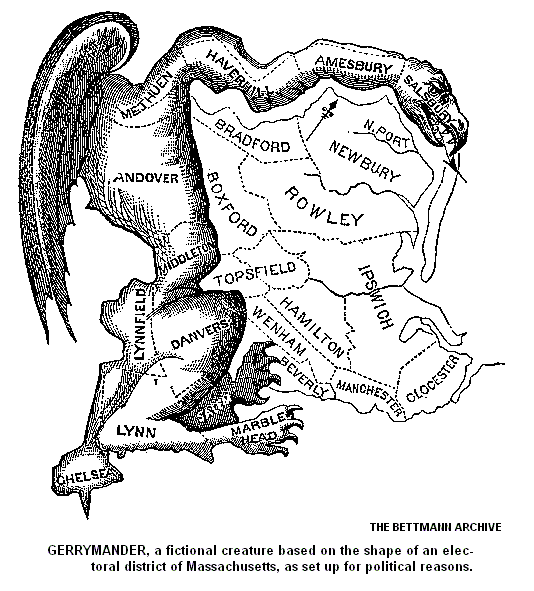
As Massachusetts' governor he
enacted a law dividing the state into new senatorial voting districts; and (2) a clipped
form of salamander, whose shape describes the election districts which he created for his
own political advantage. |
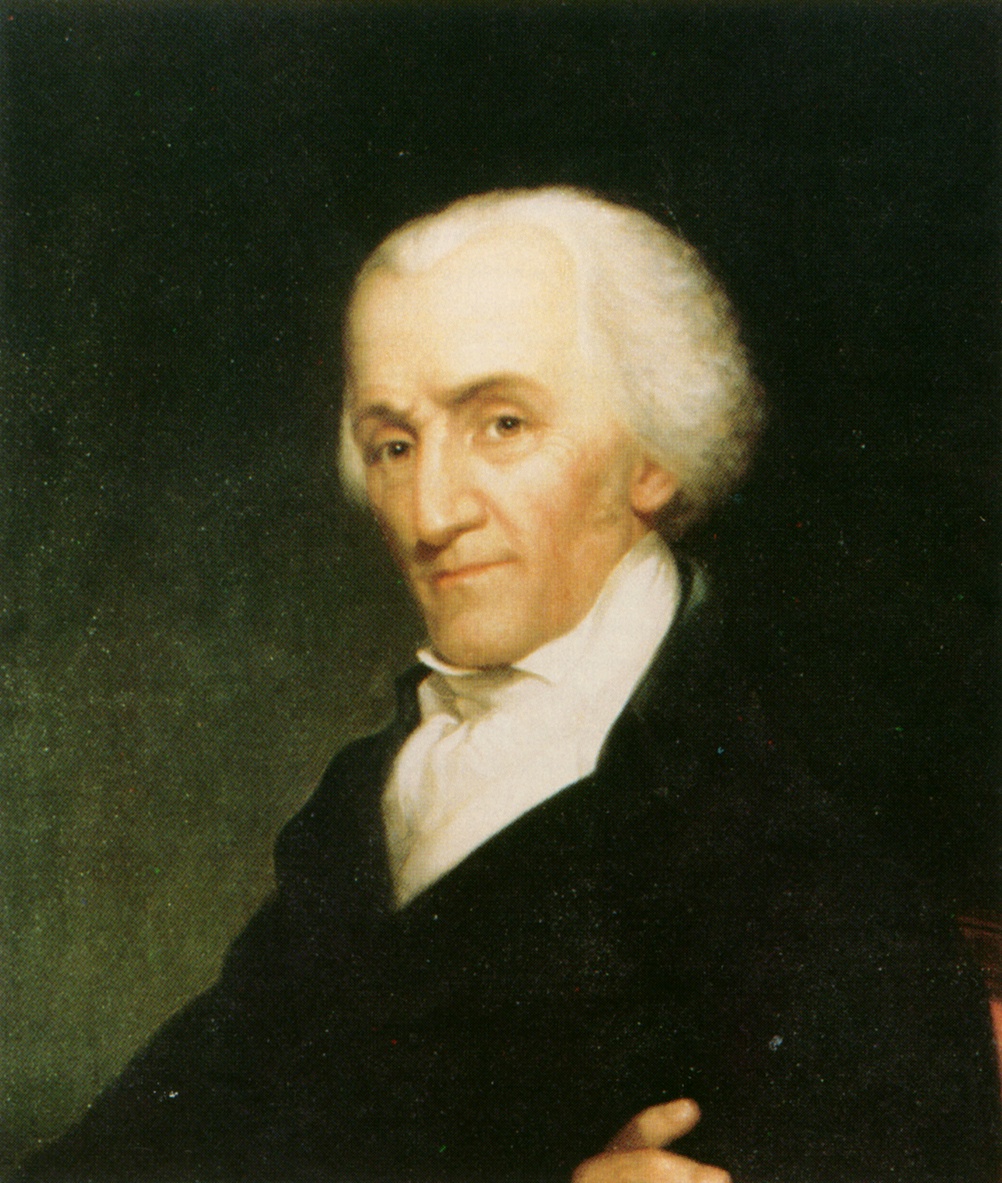
Elbridge Gerry |
jeroboam: an oversize wine bottle holding four
twenty-six ounce quarts.
This object traces its name to King Jeroboam I (fl. 912 B.C.
ruler of Israel's northern kingdom. In the Bible he is called "a mighty man of
valour" (KJV, I Kings 11:28). Solomon gave him command over the house of Joseph.
After learning that the prophet Ahijah promised Jeroboam the right of kingship over ten
tribes of Israel, Solomon plotted unsuccessfully to kill Jeroboam. |
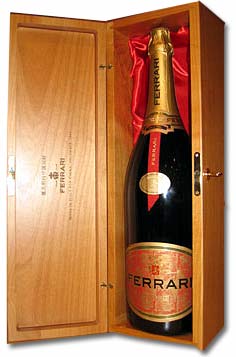
a jeroboam
|
Johnsonese: a literary style characterized by
balanced phraseology and Latin-like diction.
This term is coined from the literary style of the English lexicographer Dr. Samuel Johnson (1709-1784), whose Dictionary appeared in
1755. |
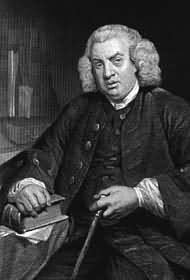
Samuel Johnson |
lavaliere: A piece of jewelry hung around the neck
on a chain.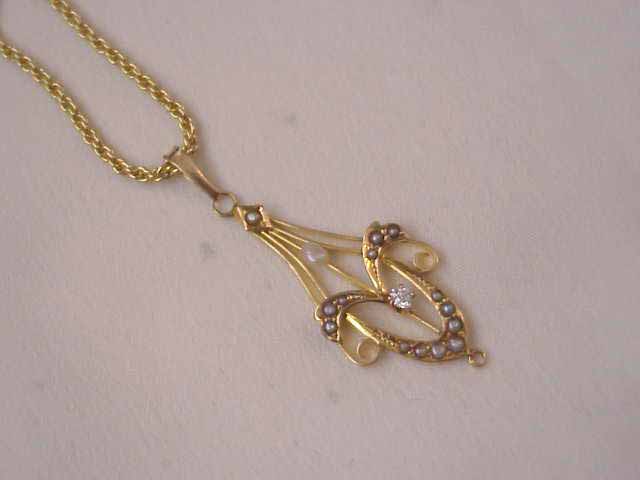
This kinds of jewelry is named after the Duchesse de La Valliere,
the lover of King Louis XV. |
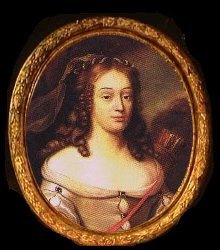
Duchesse de La Valliere
|
malapropism: the humorous misuse of a word.
The lines of Mrs. Malaprop in R.B. Sheridan's comedy The
Rivals (1755) abound with unparagoned blunders. One example is: "He is the very
pineapple of politeness." |
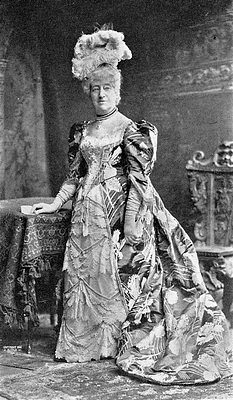
Mrs. John
Drew playing Mrs. Malaprop in a 1880
production of
The Rivals. |
mausoleum: a grand sepulchral monument.
Artemesia, widow of Mausolus, king of Caria in Asia Minor,
erected to her husband's memory in 353 B.C. a prodigious tomb at Halicarnassus. One of the
Seven Wonders of the World, the Mausoleum reached a height of one hundred feet. On its top
stood a statuary group including Mausolus and Artemesia. |
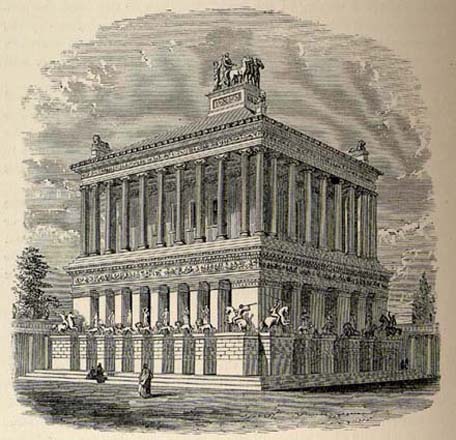
Mausoleum of
Halicarnassus |
melba toast: a thin toasted crisp bread.
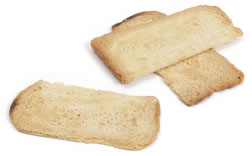
This claims its name from Dame Nellie Melba (1861-1931), an
Australian opera singer, born Helen Porter Mitchell. Her stage name is derived from
Melbourne, the capital of Victoria, Australia. After appearing on the European stage, she
made her U.S. debut as Lucia di Lammermoor at the New York Metropolitan Opera House in
1893. The dish called melba, a combination of fruit, ice cream, raspberry sauce and
whipped creme, also recalls her fame. |
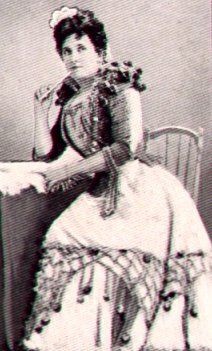
Dame Nellie Melba |
mercerize: to give cotton thread lustre, strength
and receptivity to dyes by treatment under tension with caustic soda.
An English calico printer and dye chemist, John Mercer
(1791-1866) invented this technique. |
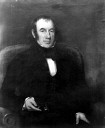
John Mercer |
mesmerize: to subject to hypnotic induction.
A Viennese physician, Dr. Franz A. Mesmer (1733-1815),
investigated the curative powers of the magnet. He developed the technique of animal
magnetism, later called mesmerism, as a facet of hypnotism. |
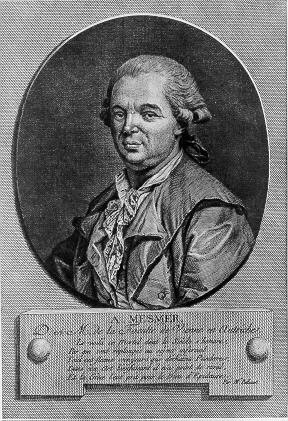
Dr. Franz A. Mesmer |
milquetoast : One who has a meek, timid,
unassertive nature.
After Caspar Milquetoast, a comic-strip character created by
Harold Tucker Webster. An indication of the effect on the English language of popular
culture such as that found in comic strips is the adoption of names from the strips as
English words. Casper Milquetoast, created by Harold Webster in 1924, was a timid and
retiring man, whose name was, of course, created from the name of a timid food. The first
instance of "milquetoast" as a common noun is found in the mid-1930's.
"Milquetoast" thus joins the ranks of other such words, including "sad sack,"
from a blundering army private invented by George Baker in 1942, and Wimpy, from
J. Wellington Wimpy in the Popeye comic strip, which became a trade name for a
hamburger . If we look to the related world of the animated cartoon, we must of course
acknowledge Mickey Mouse, which has become a slang term for something that is
easy, insignificant, small-time, worthless, or petty. |
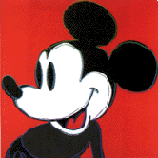
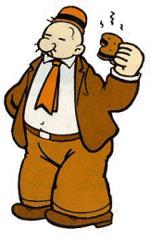 |
poinsettia: an American tropical shrub whose
usually red petal-like leaves grow beneath small yellow flowers.
The name of this plant honors the accomplishments of Joel R.
Poinsett (1799-1851) from South Carolina. Born in Charleston, Poinsett represented
his state in the U.S. House of Representatives (1812-1825), later became the first U.S.
Minister to Mexico (1831-1841). In 1810 he visited Buenos Aires and Chile to initiate
friendly commercial relations between the southern hemisphere and the United States.
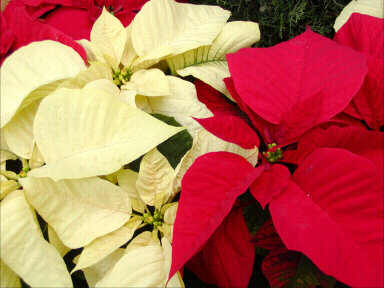 |
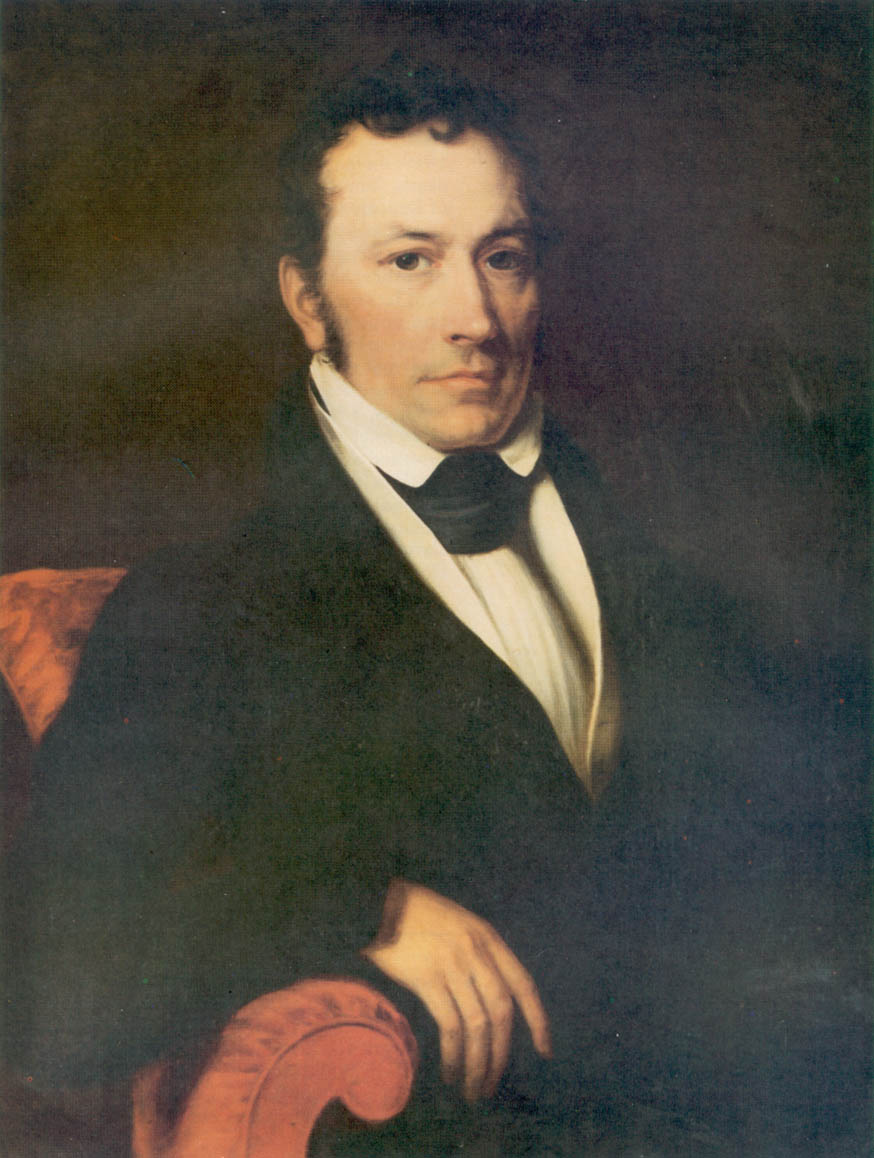
Joel R. Poinsett |
quisling:
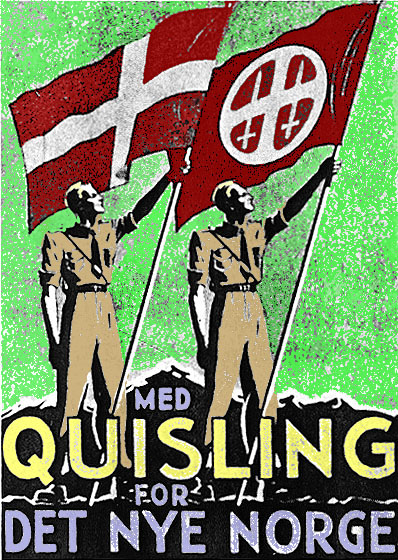 a
tratior or collaborationist a
tratior or collaborationist
Vidkun Abraham Lauritz Jonss°n
Quisling (1887-1945) was a
Norwegian fascist politican and officer. He was Minister
President in occupied Norway from February 1942 until the
country was liberated at the end of the war. He was executed for
high treason after the war and his name because associated with
traitors and collaborationists. |
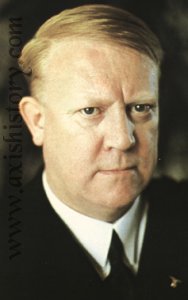
Vidkun Quisling |
|
raglan: a coat, jacket or sweater with slanted
shoulder seams and sleeves extending in one piece from the neckline.
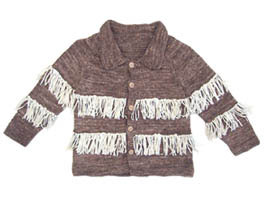
Such a garment was favored by F.J.H. Somerset (1788-1865),
dubbed Baron Raglan in 1852. While serving in the Crimean War, he led the British to
victory at the Battle of Alma in 1854 and in later action lost his sword arm.
|
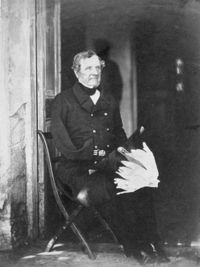
F.J.H. Somerset,
Baron Raglan |
silhouette: a shadow-like drawing, especially of a
human head or figure, in which the outline is filled in with a solid color instead of
physical details.
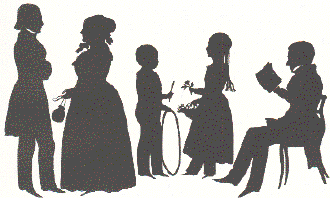
Named after Etienne de Silhouette (1709-1767), a French
finance minister. |

Etienne de Silhouette
|
| spoonerism:
Spoonerisms are
phrases, sentences, or words in language with sounds swapped.
Named after
Reverend W. A.
Spooner (1844-1930)
who was Dean and Warden of New College in Oxford, England. He is reputed to have
made these verbal slips frequently. E.g., "a well-boiled
icicle" for "a well-oiled bicycle." |
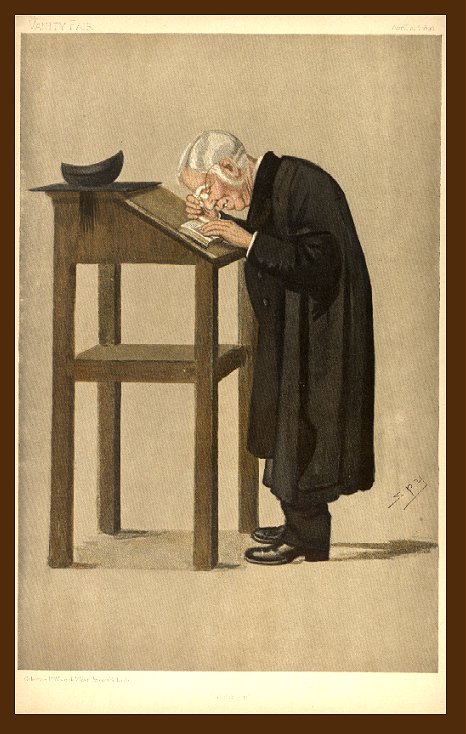
Rev. W. A. Spooner |
tontine: 1. an investment plan in which individual
participants purchase shares in a common fund and receive an annuity and in which the
entire fund is given to the final survivor or to those who survive after a specified time.
2. Any shared property which is inherited by surviving owners after a specified period of
time, such as the bottle of brandy which Colonel Potter inherited from his World War I
buddies in M*A*S*H.
Named after Lorenzo Tonti (1635-1690?), an Italian-born
French banker. |
|
| There are many more eponymns.
See
http://users.tinyonline.co.uk/gswithenbank/eponyms.htm.
For medical eponymns, see
http://www.whonamedit.com/. |
|
| |
|
Back to the Top
Monmouth
College Classics Department Homepage CLAS224 Word Elements. Monmouth College
Monmouth, Illinois
Instructor: Thomas J. Sienkewicz (toms@monm.edu)
|




























